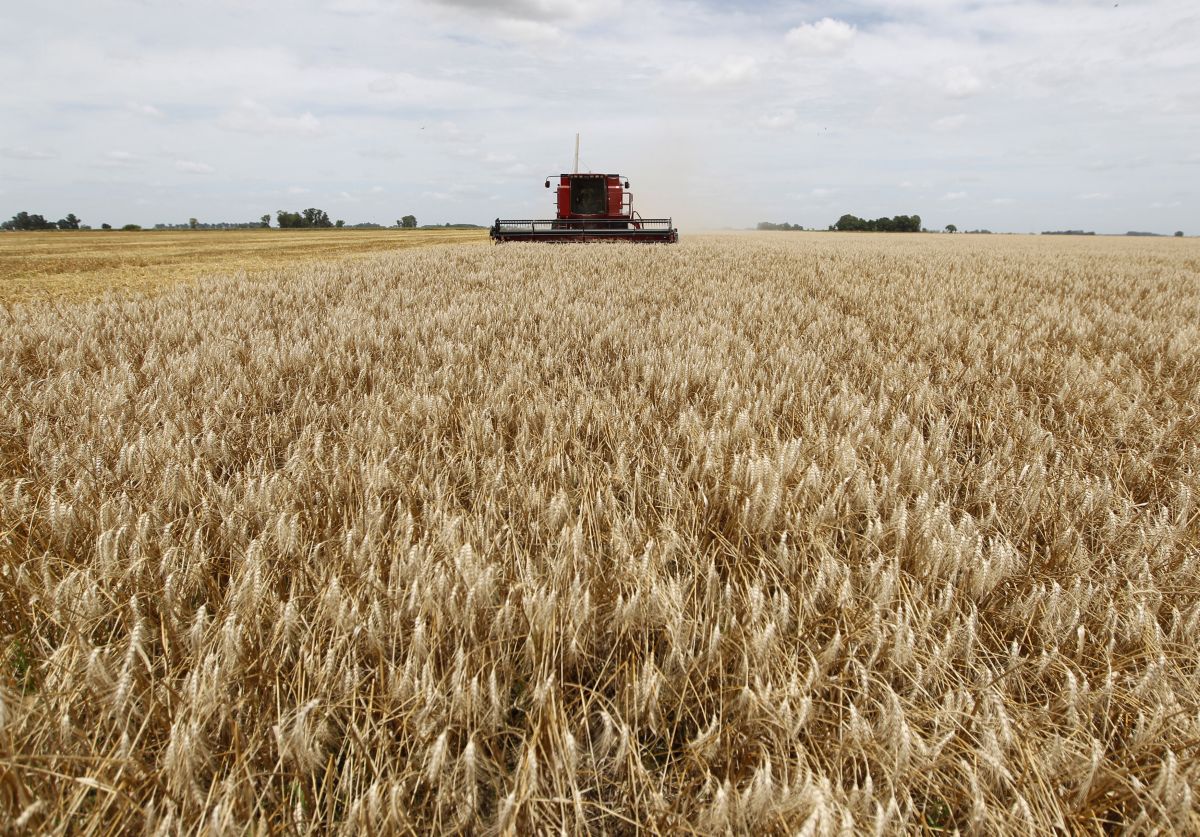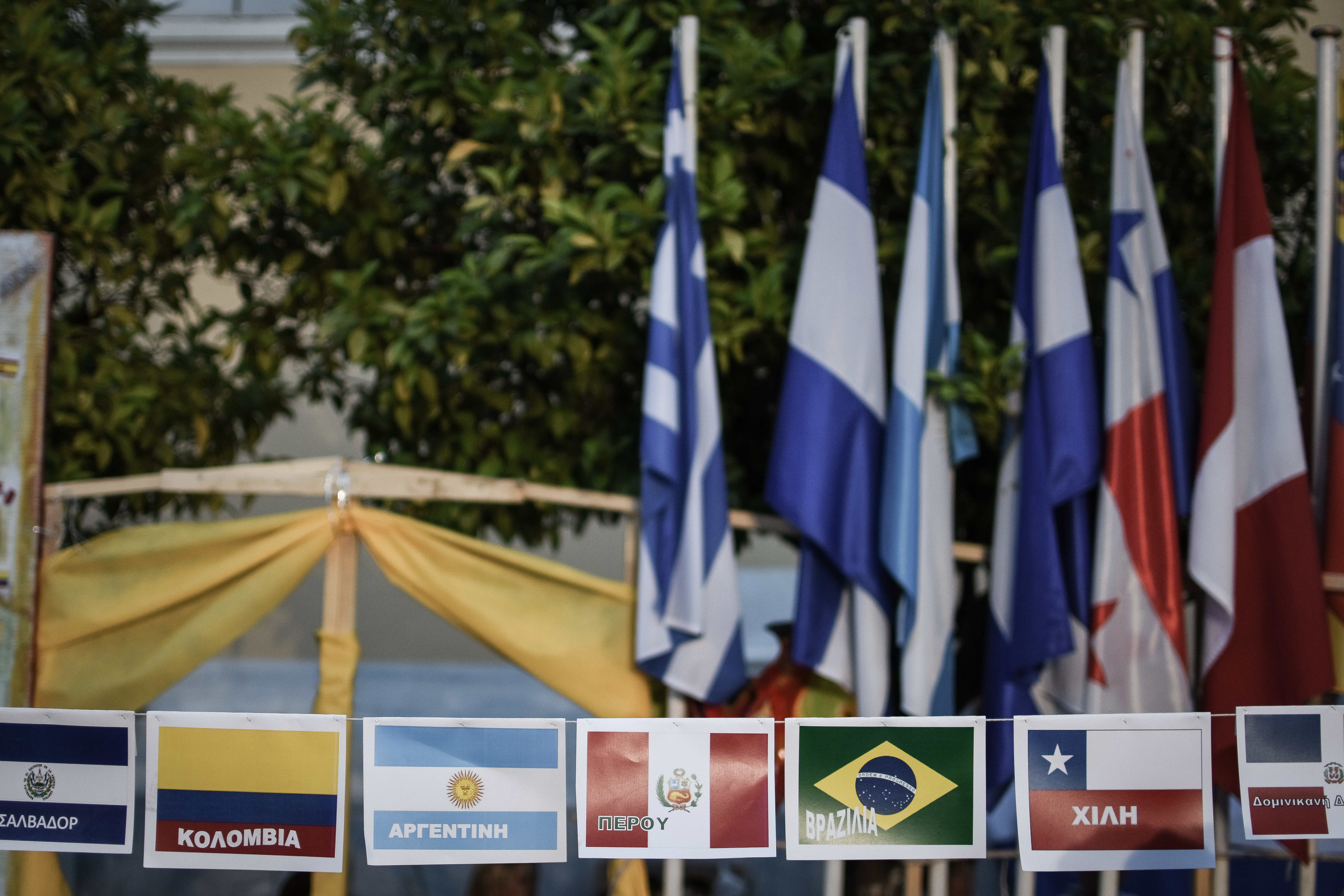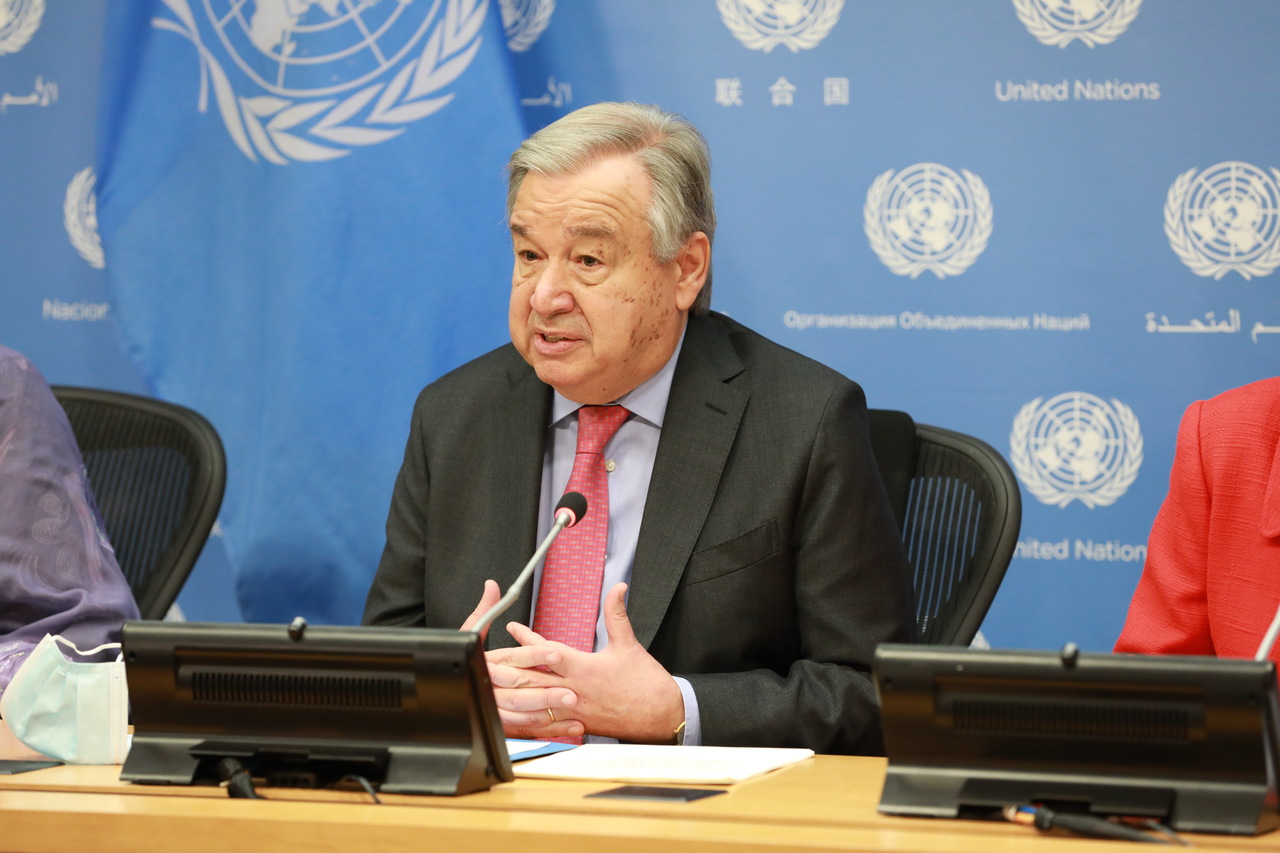Food Security in the Politics of Argentina and Brazil
Russia’s war against Ukraine is another factor coming on top of the COVID-19 pandemic that complicates the socioeconomic situation of Argentina and Brazil. These two top South American agri-food producers and exporters are expecting higher revenues from food exports, but these gains will be offset by the increases in production costs and in social spending to support their residents due to rising energy and food prices, among other burdens. In international forums they are promoting, among others, greater food price controls. They also see a chance for the EU to unblock the ratification of the Association Agreement with Mercosur.
 Enrique Marcarian/ Reuters/ FORUM
Enrique Marcarian/ Reuters/ FORUM
The Importance of Argentina and Brazil as Food Producers
In 2020, the agri-food sector’s share in the GDPs of Argentina and Brazil was almost 6% each, and UNCTAD data show that food accounted for more than 60% of Argentina’s and more than 35% of Brazil’s exports. Argentina was the 11th largest supplier of food in the world by sales value (2.6% global share) and Brazil was 3rd (5.6%).
Both countries are important suppliers of maize, wheat, and sunflower oil, products largely supplied by Ukraine or Russia so far. According to 2021 data from the World Food Organisation (FAO). Argentina and Brazil are the world’s 2nd and 3rd largest exporters of maize (Ukraine was 4th), respectively. The former country produced 60.5 million tonnes of this grain and exported 40 million tonnes of it in the year ending in February. The latter produced 87 million tonnes and shipped 21 million tonnes. Both countries are among the largest suppliers of maize to other countries, including Algeria and Egypt. Argentina is also the world’s 7th largest exporter of wheat, producing 22.1 million tonnes and selling 15.5 million tonnes. Brazil produced 7.8 million tonnes of this grain but needs to import additional supplies (more than 40% comes from Argentina). In addition, Argentina was 2nd only to Ukraine and Russia in the export of sunflower oil.
Background and Challenges
Argentina and Brazil are still struggling with the long-term difficulties caused by the economic slowdown in the second half of the 2010s and by the fight against the COVID-19 pandemic. They have seen a decline in purchasing power and a deterioration in the social situation, including rising inequality and poverty indicators, among other areas. These trends, along with the rising price of food, have led to a growing number of people who cannot afford basic food products, although there is no shortage of these goods in both countries. According to FAO, the number of people at risk of starvation in Argentina increased from an average of 2.5 million in 2014-2016 to 5.7 million in 2018-2020 (from 5.8% to 12.6% of the population), and in Brazil from 3.9 million to 7.5 million (from 1.9% to 3.5%). The international impact of Russia’s aggression against Ukraine is exacerbating these negative phenomena, especially in Argentina, which is also affected by several years of a debt crisis and very high inflation (60.7% per annum in May).
The war in Ukraine affects the agri-food sector of both countries in two ways. On the one hand, higher global food prices give a chance for greater income from food exports. However, a number of factors, primarily rising production costs, reduce the scale of these profits. Among them, are more expensive fuels as well as supply issues and higher prices of other agricultural inputs required for cultivation. For example, 85% of Brazil’s fertiliser needs are met by imports, a fifth of which used to come from Russia and Belarus. With its more fertile soils, Argentina is not so dependent on imports of these agents, but together with Brazil it has been struggling with yield volatility caused by climate change, including longer periods of drought, among others.
Measures in Response to the War
At the UN, Argentina and Brazil voted in favour of a resolution condemning the Russian invasion, among other decisions. At the same time, they have been criticising the sanctions imposed by the U.S. and the EU on Russia, as they argue that these restrictions mostly hit developing countries, including their food security.
The Brazilian authorities, for example, reduced import duties on certain categories of food (e.g., rice) as a way to contain the negative effects of the war. Even before the Russian invasion, they had been working on a plan to increase wheat supply self-sufficiency. In February, they announced a national fertiliser plan that aims to reduce long-term dependence on fertiliser imports by increasing domestic production and using the input more efficiently.
Argentina has imposed a state of food emergency until the end of this year. The measure, which extends the government powers to intervene in the food market, is based on a law adopted in 2002 in response to the severe financial crisis at the time, and recently applied during the COVID-19 pandemic. The government established a wheat price stabilisation fund to prevent the cost of flour and bread from rising. It has tightened controls on foreign exchange and maintains export duties (e.g., 12% on maize and wheat). Together with Brazil, it also sees an opportunity to increase wheat cultivation thanks to agrobiotechnological innovations developed by domestic research agencies. For example, the Brazilian Embrapa is working on drought-resistant varieties of this cereal.
Both countries also have been seeking support of multilateral organisations, the FAO in particular. Shortly after Russia invaded Ukraine, Brazil led an initiative with other South American countries demanding that fertilisers be excluded from the list of sanctioned goods. It negotiated an increase in supplies with Canada and lobbied the U.S. for exceptions to the embargo on Iran, a producer of nitrogen fertilizers. In the end, Brazil received the expected supplies of fertilizers from Russia thanks to the support of the U.S. and the help of New York-based Citigroup in allowing the necessary banking transactions. In mid-June, the Brazilian government proposed an agreement to the World Trade Organisation (WTO) to stabilise food prices. Argentina, as the pro tempore president of the Community of Latin American and Caribbean States (CELAC), called on the FAO and the World Food Programme to support the countries of the region and to strengthen the role of multilateral forums in ensuring food accessibility and counterbalancing market mechanisms.
Argentina and Brazil are trying to promote themselves as reliable food suppliers that can replace blocked exports from Ukraine originally destined for example to North African countries. In May, Argentine President Alberto Férnandez, during a visit to Europe, including Spain, assured his partners about Argentina’s readiness to share knowledge in the field of agriculture. The Argentine authorities also assume that the current context may help create more openness abroad to genetically modified foods. Brazil wants to persuade other countries that it can increase agricultural production without cutting down forests for crops, mainly through innovation. Although both countries have restrictive trade policies, they argue for liberalisation of agricultural exchanges around the world. They believe that the context of the war favours breaking the deadlock on the ratification of the EU-Mercosur agreement, although they acknowledge protectionist attitudes persist in some EU countries.
Conclusions and Perspectives
The prolonged war in Ukraine and the continuation of sanctions against aggressors Russia and Belarus will make it difficult for Argentina and Brazil to overcome many years of economic and social difficulties. The authorities of both countries have responded with a more active policy of combating hunger, but at the same time they want to use the situation to strengthen their position as key global food suppliers.
The use of such measures as higher social benefits and food subsidies will strain the public finances of both countries and may not be enough to improve food access and may increase the risk of escalating social unrest. In turn, the rising production costs and long perspective needed to develop, for example, the local fertiliser sector to lessen imports, will offset income from the more profitable sale of food. Instead, both countries will engage in multilateral forums such as the FAO and the WTO to promote solutions that support the food security of developing countries while calling for the liberalisation of agricultural trade.
The problem of combating the food crisis will be an important factor for Argentina’s and Brazil’s relations with the EU. Unlike the EU, the governments of these countries do not see the cause of shortages and the increase in food prices in the Russian authorities’ decision to invade and block Ukrainian ports, but in the sanctions imposed on Russia and Belarus. The impasse with the ratification of the EU-Mercosur Agreement weakens the EU’s credibility in Argentina and Brazil. There is no consensus among EU members on this issue, but the EU hopes to achieve it in the second half of 2023 during the Spanish presidency of the Council of the EU. Last June, representatives of 15 of the 27 EU governments called on the EU Trade Commissioner to speed up trade negotiations and finalise agreements with Mercosur, among other partners.




.jpg)